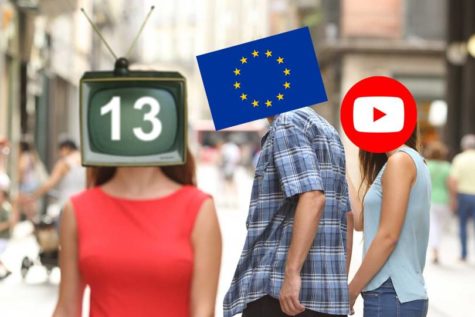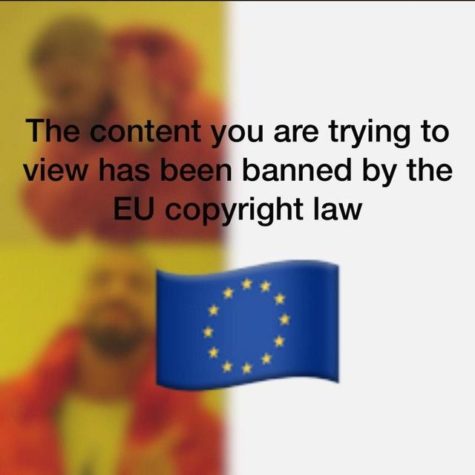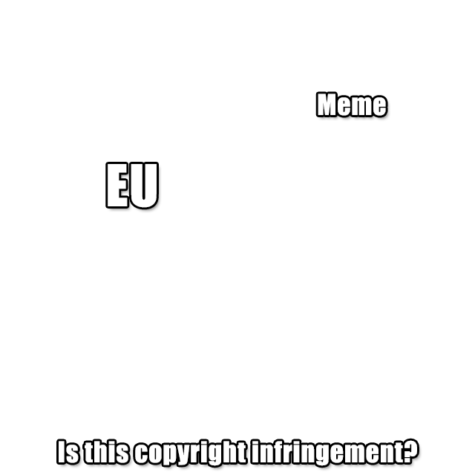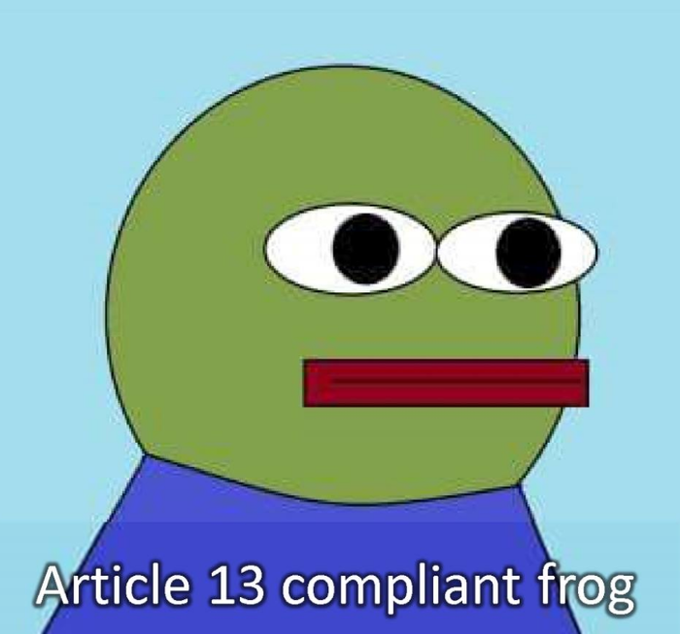EU passes ‘meme ban’ and sets a new copyright plan
Articles 13 and 11 set the EU on a copyright infringement (and meme) free path
Article 13 does not prevent users from creating their own unique…’artwork’
September 19, 2018
On Wednesday Sept. 12, European parliament passed articles 13 and 11 in favor of a new digital copyright directive in an attempt to limit the sharing of copyright content.

Articles 13 and 11 are both part of the European Union’s plan to crack down on copyright infringement. Parliament originally rejected the articles in July, but they were proposed again with a set of revised rules. Here are the basics:
According to the European Parliament’s website, large tech industries such as Google (specifically Google News) must pay for the work of the artists and journalists it displays. However, small and individually run platforms are exempt from this rule. Originally, Article 11 wished to allow content creators to charge a tax on anything that hyperlinked to their content. This was amended during the vote on Wednesday to allow hyperlinks and “individual words,” which were not specified clearly in the text, to be shared freely. Lastly, “Journalists must get a share of any copyright-related remuneration obtained by their publishing house.”
In Matt Reynold’s article published on Sept. 17 to WIRED, he describes how large platforms that allow users to share content are now being held responsible for copyright infringement on their customer’s part. This means that companies will have to scan every piece of content uploaded for copyright. An upload filter on a giant platform is potentially problematic for big corporations, but even more so for smaller sites with less of a revenue stream. Article 13 is majorly criticized for being the ‘Meme ban’ because most memes are copyrighted, so the sharing of memes on the Internet would be halted, as most memes are copyright infringement. This is what sparked Article 13’s controversial popularity.
One of the major critics of the articles is Julia Reda, a member of the European Parliament herself. On her website, Reda describes how “Article 11 (393 for, 279 against) allows only ‘individual words’ of news articles to be reproduced for free, including in hyperlinks – closely following an existing German law. Five years after the ‘link tax’ came into force in Germany, no journalist or publisher has made an extra penny, startups in the news sector have had to shut down and courts have yet to clear up the legal uncertainty on exactly where to draw the line.” Reda has a personal vendetta against the newly set restrictions because of their failure in her home country, Germany. Though articles 13 and 11 were eventually passed, her online campaign set off an Internet-wide protest that not only caught the attention of Americans but also introduced a multitude of memes poking fun at the EU and Article 13.


Just because the legislation has lead to the creation of some hilarious memes (that make us question how much time we spend online) does not mean that one can ignore how impactful the articles will be to Europe, and maybe even the rest of the world. Online marketing and distribution has changed the way people share their content, mostly for the better, but it has also made it easier for people to take advantage of others’ work and profit on it. The internet has the capacity to push the limits of the human mind; can one really put a cap on it?









